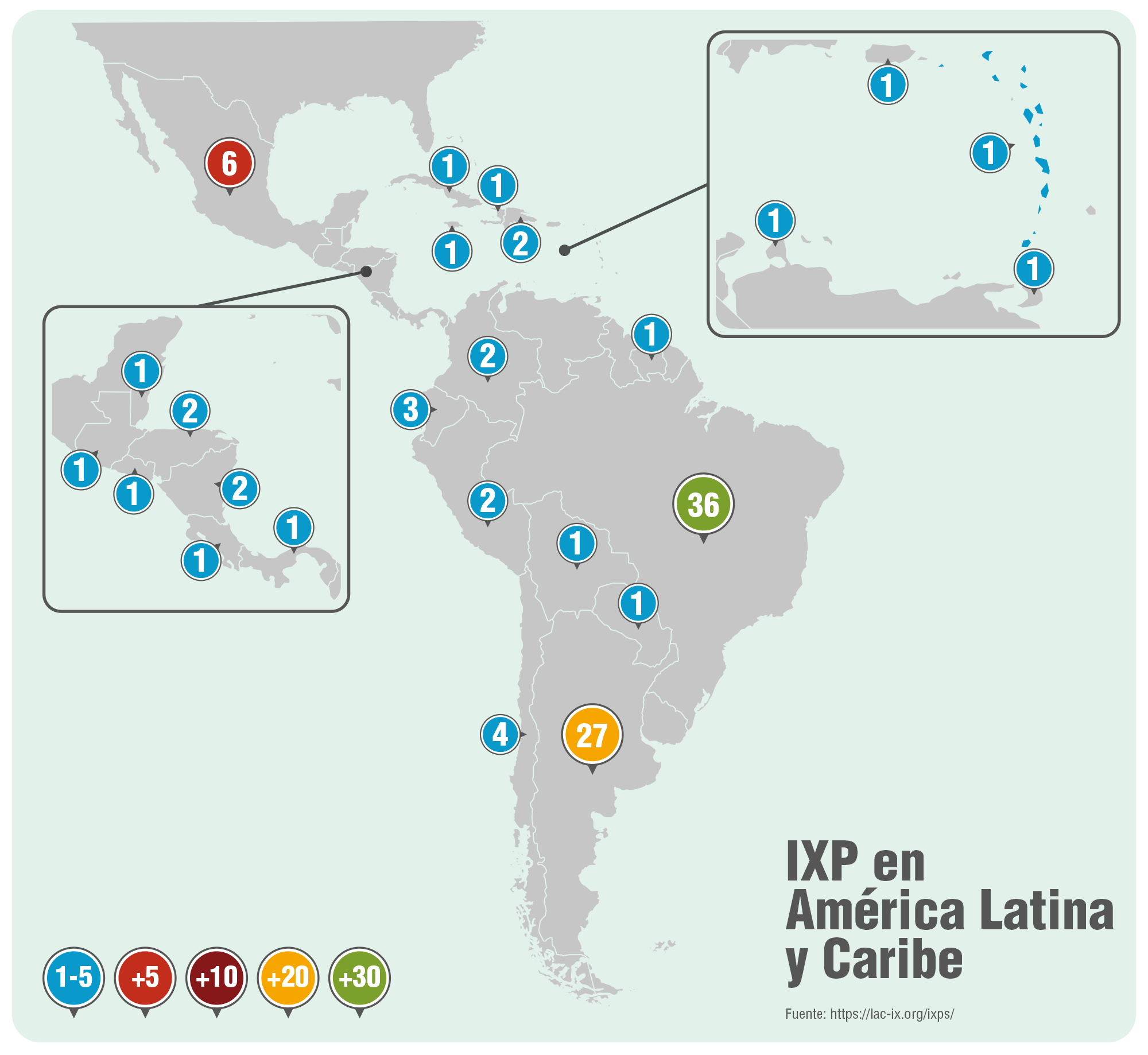Advances and Opportunities for the Growth of Internet Exchange Points (IXPs)
18/03/2024

By Gabriel Adonaylo – Coordinador de LAC-IX, Israel Rosas – Director, Partnerships and Internet Development de Internet Society, Mauricio Oviedo – Technical Outreach Manager en LAC-IX
Over the recent years, the peering ecosystem in the Latin American and Caribbean region has undergone a substantial transformation in direct response to the ongoing digital revolution within the region. Internet Exchange Points (IXPs) have become a fundamental component of the region’s Internet infrastructure, serving as hubs for local technical communities. Although progress has been significant, there are still opportunities for further collaboration at both levels.
The Internet is Only as Resilient as its Infrastructure
Since 2018, LACNIC, LAC-IX and the Internet Society have promoted a program in favor of strengthening IXPs in the region. This program has resulted in the deployment of 5 new IXPs within the region and the strengthening of 10 existing IXPs through 17 projects.
Thanks to the collaborative approach of this alliance, the IXPs have been able to participate in various working groups, reaching out to the community to discuss improvements, solve problems together and increase consistency in the implementation of best operating practices.
As a result, 36% of LAC-IX members have adopted the actions suggested by best routing practices (MANRS) to improve the security of the routing system, while 86% have implemented IPv6. In addition, 49% of IXPs have incorporated RPKI origin validation.
Despite significant progress, there are still actions to be implemented. Only 25% of IXPs in the region have a route collector and 18% have integrated AS112. Therefore, the three organizations extend an invitation to IXP operators to connect with established groups, offering valuable advice on crucial considerations for implementing improvements in their infrastructure and services.
(Free access, no subscription required)

A Community of Experts
The Latin American and Caribbean Association of Traffic Exchange Points (LAC-IX) maintains that one of the impacts of the program has been the generation of a framework for the implementation of best operating practices in IXPs, which has made it possible to collaborate with the region’s existing IXPs to help them reach the baseline.
Another high point of the program has been training and coaching, including in-person training sessions. The first session was held at LACNIC 40, in Fortaleza, Brazil, with IXP technicians. Throughout 2023, various subjects were addressed, such as routing best practices, Internet quality measurement, VXLAN technology, use of PeeringDB, protection of peering platforms, BGP best practices and filtering, and the significance of DNS for IXPs, among others. There will be a second face-to-face meeting with LAC-IX technicians during the LACNIC 42/LACNOG 2024 meeting.
The views expressed by the authors of this blog are their own and do not necessarily reflect the views of LACNIC.